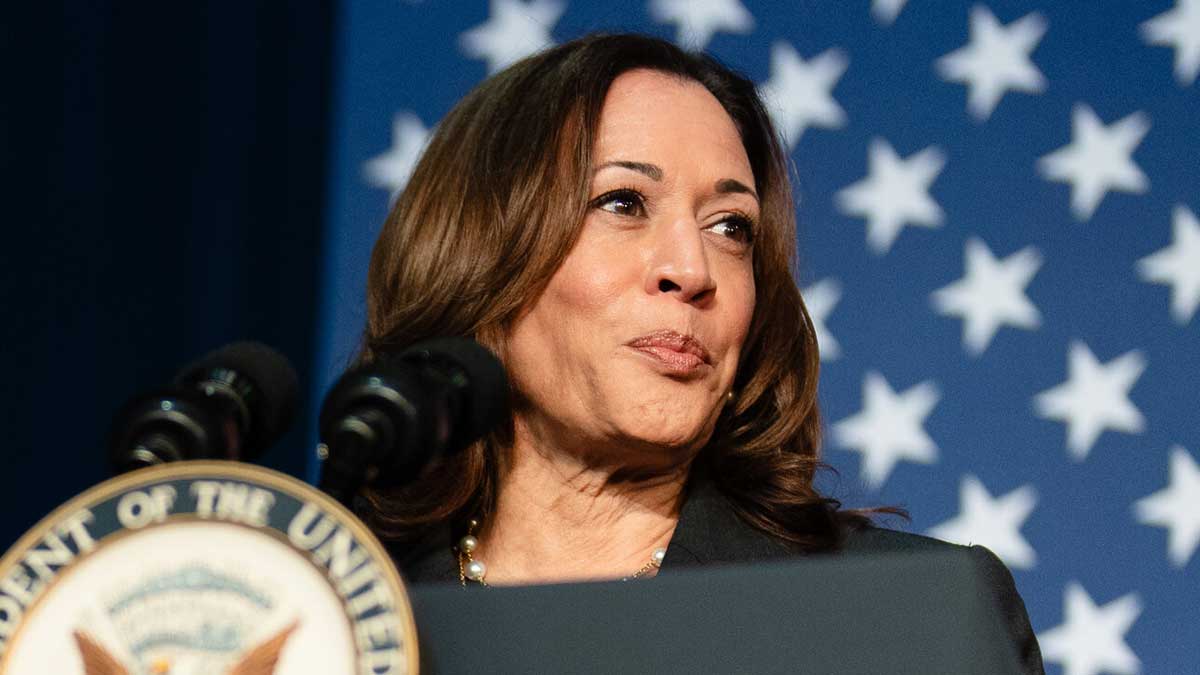- Home
- Billionaires
- Investing Newsletters
- 193CC 1000
- Article Layout 2
- Article Layout 3
- Article Layout 4
- Article Layout 5
- Article Layout 6
- Article Layout 7
- Article Layout 8
- Article Layout 9
- Article Layout 10
- Article Layout 11
- Article Layout 12
- Article Layout 13
- Article Layout 14
- Article Sidebar
- Post Format
- pages
- Archive Layouts
- Post Gallery
- Post Video Background
- Post Review
- Sponsored Post
- Leadership
- Business
- Money
- Small Business
- Innovation
- Shop
Recent Posts
GOP Pushes Impeachment of Kamala Harris Amid Border Criticism

On Tuesday, Rep. Andy Ogles (R-Tenn.) introduced articles of impeachment against Vice President Kamala Harris, accusing her of gross incompetence and failure in her handling of the southern border crisis. This action marks a significant escalation in Republican efforts to target Harris, who is stepping into a more prominent role following President Joe Biden’s abrupt exit from the presidential race.
Ogles’ resolution claims that Harris has committed “high crimes and misdemeanors” through her performance as Vice President. The articles specifically criticize Harris for her alleged “extraordinary incompetence” in managing border-related issues. According to Ogles, Harris has failed to enforce existing immigration laws effectively and has shown “palpable indifference” to the suffering caused by the ongoing border crisis. This criticism reflects a broader Republican strategy to challenge Harris’s competency as she prepares to lead the Democratic ticket.
The move to impeach Harris is widely seen as a political maneuver with minimal chance of success. The resolution has yet to receive a formal response from Harris, and her office has not issued a statement regarding the impeachment articles. The initiative appears to be more of a symbolic gesture aimed at undermining Harris’s credibility rather than a serious attempt to remove her from office.
The timing of the impeachment articles coincides with a period of intense scrutiny for Harris. Following Biden’s announcement on Sunday that he would withdraw from the 2024 presidential race, Harris has emerged as the leading Democratic candidate. This transition has put her under the Republican spotlight, particularly regarding her role in addressing the migration surge at the southern border—a major issue for the GOP.
The Republican critique of Harris has been especially fierce in recent days. Among the proposed responses is a potential floor vote led by Republican Conference Chair Elise Stefanik (R-N.Y.), aimed at condemning Harris’s handling of the U.S.-Mexico border situation. However, with the Senate under Democratic control, it is unlikely that even if the House were to pass an impeachment resolution, it would secure confirmation in the Senate.
In addition to the impeachment effort, some Republican lawmakers have called for Harris to invoke the 25th Amendment to remove Biden from office. These calls have gained momentum in light of Biden’s poor debate performance last month, which highlighted concerns about his age and cognitive ability. Critics, including House Speaker Mike Johnson (R-La.), Rep. Chip Roy (R-Texas), and Rep. Clay Higgins (R-La.), have suggested that Harris should consider this route to address what they perceive as Biden’s inability to fulfill his presidential duties.
Biden’s decision to withdraw from the presidential race came after weeks of mounting pressure from within his party, major donors, and political commentators, following a lackluster debate performance. Despite Biden’s endorsement of Harris as his preferred successor, the Vice President has not yet secured the Democratic nomination. This decision will ultimately be made at the Democratic National Convention next month.
As of Tuesday morning, however, Harris has made significant progress in securing delegate support. She has received pledges from over 2,600 delegates, which positions her favorably for the Democratic nomination. In addition to her delegate support, Harris has also achieved a significant fundraising milestone, raising $81 million in the first 24 hours of her campaign—a record amount for a new campaign launch.
While the impeachment effort against Harris continues to unfold, it is likely to remain a contentious but symbolic aspect of the political landscape. As Harris moves forward with her campaign and works to solidify her position as the Democratic nominee, the debates over her handling of border issues and her political future are expected to remain central themes in the ongoing political discourse.
Recent Posts
Categories
- 193cc Digital Assets2
- 5G1
- Aerospace & Defense44
- AI32
- Arts3
- Banking & Insurance11
- Big Data3
- Billionaires216
- Boats & Planes1
- Business304
- Careers13
- Cars & Bikes66
- CEO Network1
- CFO Network17
- CHRO Network1
- CIO Network1
- Cloud10
- CMO Network18
- Commercial Real Estate7
- Consultant1
- Consumer Tech155
- CxO1
- Cybersecurity51
- Dining1
- Diversity, Equity & Inclusion4
- Education7
- Energy8
- Enterprise Tech29
- Events11
- Fintech1
- Food & Drink2
- Franchises1
- Freelance1
- Future Of Work2
- Games135
- GIG1
- Healthcare74
- Hollywood & Entertainment154
- Houses1
- Innovation37
- Investing2
- Investing Newsletters4
- Leadership65
- Lifestyle10
- Manufacturing1
- Markets20
- Media183
- Mobile phone1
- Money13
- Personal Finance2
- Policy542
- Real Estate1
- Research6
- Retail1
- Retirement1
- Small Business1
- SportsMoney22
- Style & Beauty1
- Success Income1
- Taxes2
- Travel10
- Uncategorized6
- Vices1
- Watches & Jewelry2
- world's billionaires186
Related Articles
Carr’s FCC Nomination and Musk’s Potential Gains
President-elect Donald Trump has nominated Brendan Carr to lead the Federal Communications...
By 193cc Agency CouncilNovember 19, 2024Musk Joins Trump’s Call with Ukraine’s Zelensky
Billionaire Elon Musk played an unexpected role in a call between President-elect...
By 193cc Agency CouncilNovember 9, 2024Trump’s Day 1 Priorities: Immigration, Energy, Ukraine, Iran
Former President Donald Trump’s advisers revealed that his top priorities for the...
By 193cc Agency CouncilNovember 7, 2024Elon Musk’s Potential Role and Influence in a Trump Administration
With Donald Trump’s successful bid for re-election, the question on many minds...
By 193cc Agency CouncilNovember 7, 2024















Leave a comment